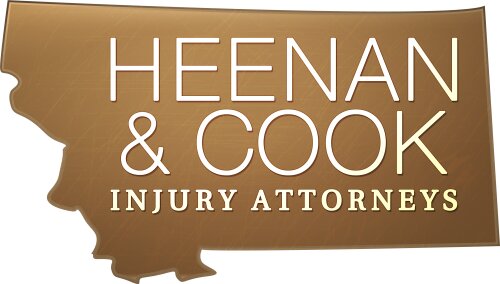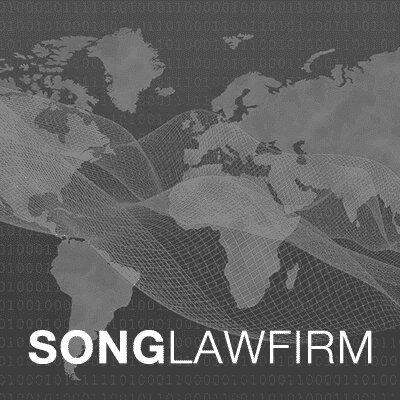Best Workers Compensation Lawyers in United States
Share your needs with us, get contacted by law firms.
Free. Takes 2 min.
Or refine your search by selecting a city:
List of the best lawyers in United States
About Workers Compensation Law in United States
Workers Compensation in the United States is a form of insurance that provides wage replacement and medical benefits to employees injured in the course of employment. In return, employees relinquish their right to sue their employer for negligence. Workers Compensation laws vary by state, but they are designed to ensure that employees who are injured or become ill due to their job receive appropriate care and compensation without lengthy legal battles. Employers are generally required by law to carry Workers Compensation insurance, although exemptions can apply to certain types of workers or small businesses.
Why You May Need a Lawyer
While many Workers Compensation claims can be handled without legal assistance, there are several situations where it might be necessary to consult a lawyer:
- If your claim is denied and you're unsure why or how to appeal.
- If you're being accused of a fraudulent claim.
- If you're not receiving your benefits in a timely manner or they seem inadequate.
- If you have a pre-existing condition that is aggravated by your job.
- If you're facing retaliation or discrimination from your employer after filing a claim.
- If you have a complex claim, such as a severe or catastrophic injury.
- If your employer does not have Workers Compensation insurance.
Local Laws Overview
Workers Compensation laws can differ significantly from one state to another. However, some common elements include:
- Mandatory coverage by employers for all their employees, with specific exemptions.
- Benefits typically cover medical expenses, a portion of lost wages, and rehabilitation costs.
- Most states have a deadline for reporting a workplace injury, ranging from immediate to 30 days.
- The compensation process is generally administrative, involving a state Workers Compensation board or agency.
- Some states have special provisions for permanent disability or vocational rehabilitation.
- There are statutes of limitations for filing a claim, which differ by state.
Frequently Asked Questions
What is Workers Compensation Insurance?
Workers Compensation Insurance is a mandatory type of insurance carried by businesses to provide benefits to employees who suffer work-related injuries or illnesses.
What types of injuries are covered?
Injuries that occur as a direct result of work activities or the work environment, including accidents and occupational illnesses, are typically covered.
How long do I have to file a Workers Compensation claim?
Time limits to file a claim vary by state, ranging from immediate notification to within 30 days of the injury. Check your state's specific requirements to ensure compliance.
Can I choose my own doctor for treatment?
This depends on the state you are in; some states allow for choice of doctor, while others have specific networks or lists of approved providers you must use.
What happens if my claim is denied?
You can contest a denied claim by filing an appeal with the appropriate Workers Compensation agency in your state. Seeking legal advice is often beneficial in these cases.
Are all employees covered under Workers Compensation?
Most employees are, but there are exceptions, which can include agricultural workers, domestic workers, and freelancers. States have specific rules regarding exemptions.
What benefits can I expect to receive?
Benefits can include payment for medical expenses, rehabilitation services, compensation for lost wages, and disability payments, depending on the severity of the injury.
Can I get fired for filing a Workers Compensation claim?
It is illegal for an employer to retaliate against you for filing a Workers Compensation claim. However, proving retaliation can sometimes be complex, and legal assistance may be necessary.
What if I was injured due to a third party?
You might be able to file a third-party claim in addition to your Workers Compensation claim if someone other than your employer was responsible for your injury.
Can I refuse to return to work if I feel I’m not ready?
Returning to work depends on your medical provider's assessment. If released to work but you feel otherwise, you can seek a second medical opinion or discuss accommodations with your employer.
Additional Resources
For more detailed information and assistance, consider reaching out to the following resources:
- The U.S. Department of Labor's Office of Workers' Compensation Programs (OWCP).
- State-specific Workers Compensation Boards or Commissions.
- Legal aid societies or non-profits that offer help with Workers Compensation issues.
- National Workers' Compensation and Disability Conference for educational materials.
Next Steps
If you believe you need legal assistance with a Workers Compensation matter, begin by:
- Gathering all relevant documentation related to your injury and employment.
- Contacting your state Workers Compensation board for more information.
- Consulting with a lawyer specializing in Workers Compensation to evaluate your case.
- Checking reviews or seeking referrals to find a reputable attorney.
- Prepare questions beforehand to make the most of your consultation with a lawyer.
Lawzana helps you find the best lawyers and law firms in United States through a curated and pre-screened list of qualified legal professionals. Our platform offers rankings and detailed profiles of attorneys and law firms, allowing you to compare based on practice areas, including Workers Compensation, experience, and client feedback.
Each profile includes a description of the firm's areas of practice, client reviews, team members and partners, year of establishment, spoken languages, office locations, contact information, social media presence, and any published articles or resources. Most firms on our platform speak English and are experienced in both local and international legal matters.
Get a quote from top-rated law firms in United States — quickly, securely, and without unnecessary hassle.
Disclaimer:
The information provided on this page is for general informational purposes only and does not constitute legal advice. While we strive to ensure the accuracy and relevance of the content, legal information may change over time, and interpretations of the law can vary. You should always consult with a qualified legal professional for advice specific to your situation.
We disclaim all liability for actions taken or not taken based on the content of this page. If you believe any information is incorrect or outdated, please contact us, and we will review and update it where appropriate.
Browse workers compensation law firms by state in United States
Refine your search by selecting a state.















